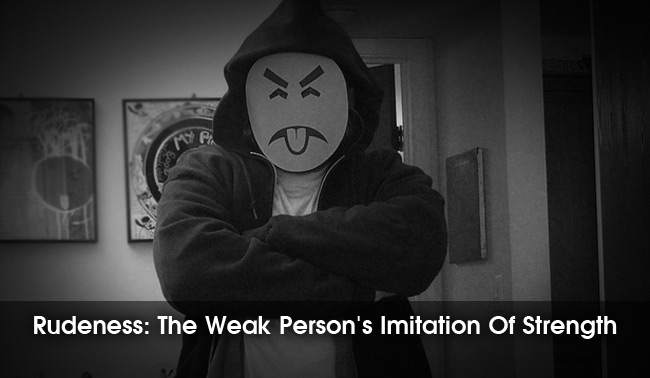Picture this: Your boss’s face has turned an alarming shade of crimson, veins visibly pulsing at the temples, all because you arrived five minutes late to work. Around you, colleagues exchange knowing glances and whisper criticisms, their misunderstanding of your perspective palpable in the tense office air. The atmosphere is charged with negativity, and your instinct may be to respond in kind—to defend, attack, or retreat.
This post contains Amazon affiliate links, meaning I may earn a small commission if you purchase through my links, at no extra cost to you. Note: We aim to provide accurate product links, but some may occasionally expire or become unavailable. If this happens, please search directly on Amazon for the product or a suitable alternative.
The Power of the Pause
Before you react, I invite you to do something counterintuitive yet powerful. Lift your gaze to the ceiling, inhale deeply, and grant yourself a momentary sanctuary from the emotional turbulence surrounding you. This simple act—this deliberate pause—can be the difference between regrettable impulsivity and thoughtful response.
Dealing with difficult people can trigger our most primal reactions. The limbic system—our emotional brain—activates, flooding our bodies with stress hormones that prepare us for “fight or flight.” But in the modern workplace, neither fighting nor fleeing serves our long-term interests. Instead, we must engage our prefrontal cortex, the seat of rational thought and emotional regulation.
The Art of Perspective-Taking
One of the most profound realizations on the journey to emotional intelligence is understanding that perception is subjective. What seems illogical or unreasonable to you may appear entirely justified to another. This isn’t merely a philosophical observation—it’s a practical tool for navigating complex human interactions.
Consider the concept of “sonder”—the realization that each random passerby is living a life as vivid and complex as your own. Your difficult boss or judgmental colleague exists within their own narrative, complete with struggles, fears, and motivations you may never fully comprehend. Their behavior, however irrational it may seem, makes perfect sense within their internal framework.
Emotional Regulation, Not Suppression
To be clear, managing your reactions doesn’t mean suppressing your emotions or accepting mistreatment. Emotional suppression—the act of pushing feelings down rather than processing them—is associated with numerous negative health outcomes, including increased stress, cardiovascular issues, and diminished immune function.
Instead, I advocate for emotional regulation—acknowledging your feelings while choosing your response deliberately. This approach transforms reactive energy into constructive action. Rather than allowing someone else’s negativity to dictate your emotional state, you maintain sovereignty over your inner experience.
The Ripple Effect of Human Emotion
Our emotional lives don’t exist in isolation. We function within complex social ecosystems where emotions spread like ripples in a pond. Psychologists call this “emotional contagion”—the tendency to catch and mirror the emotional states of those around us. When someone directs anger toward you, your natural tendency is to absorb and reflect that same emotion.
Understanding this phenomenon allows you to break the cycle. Recognize that the person lashing out is likely carrying emotional baggage unrelated to you. Perhaps your boss received criticism from senior management before your arrival. Maybe your colleague is struggling with personal issues that color their workplace interactions. Their emotional state, while directed at you, rarely originates with you.
Active Listening as a Transformative Tool
When confronted with difficult behavior, one of the most powerful responses is simply to listen—not the passive hearing that occupies the time until you can speak again, but active, engaged listening that seeks genuine understanding.
Active listening involves several components:
- Maintaining appropriate eye contact
- Offering non-verbal acknowledgment (nodding, appropriate facial expressions)
- Asking clarifying questions
- Paraphrasing to confirm understanding
- Suspending judgment temporarily
- Being fully present in the conversation
When you truly listen to someone, you communicate respect for their experience, even if you disagree with their perspective. This validation often defuses tension and creates space for productive dialogue. As Stephen Covey wisely noted, “Seek first to understand, then to be understood.”
Empathy as Practice
Empathy—the ability to understand and share the feelings of another—is not merely an innate trait but a skill that can be cultivated. When facing a difficult person, try this mental exercise: Step into their shoes completely, if only for a moment. What pressures might they be under? What fears or insecurities could be driving their behavior? What might their goal be in this interaction?
This perspective-taking doesn’t require you to agree with their actions or concede your position. Rather, it provides valuable context that can inform your response. Dismissing someone’s emotions only entrenches their defensive posture, making resolution increasingly unlikely.
The Self-Reinforcing Cycle of Emotional Intelligence
Perhaps the most compelling reason to develop these skills is that they create a positive feedback loop in your life. Each difficult interaction you navigate successfully builds your emotional resilience and interpersonal wisdom. Over time, situations that once triggered stress become opportunities to practice and demonstrate your emotional mastery.
Research in neuroscience confirms that emotional regulation becomes easier with practice. Like strengthening a muscle, each mindful response reinforces neural pathways that make future self-regulation more automatic.
Practical Strategies for Daily Implementation
Developing these capabilities requires intentional practice. Consider incorporating these techniques into your daily interactions:
- The 10-second rule: Before responding to provocative behavior, count to ten while breathing deeply.
- Curiosity over judgment: Replace “Why are they being so unreasonable?” with “I wonder what might be happening for them right now.”
- Physical awareness: Notice physical signs of emotional reactivity (tightened jaw, shallow breathing) as early warning signals.
- Linguistic reframing: Use language that separates the person from the behavior: “I’m concerned about this approach” rather than “You’re being difficult.”
- Self-compassion: Acknowledge when interactions are challenging and be kind to yourself in the process.
Conclusion: The Path to Personal Sovereignty
While you cannot control the emotions or behaviors of others, you possess complete authority over your own responses. This truth is simultaneously challenging and liberating. It places responsibility on your shoulders while granting you freedom from the emotional whims of those around you.
By developing your capacity to respond rather than react, to understand rather than judge, and to maintain your emotional equilibrium in turbulent interactions, you don’t just survive difficult encounters—you transform them into opportunities for growth.
The next time you face someone’s anger or unreasonable behavior, remember: their emotional state is information, not instruction. You can acknowledge their feelings without adopting them as your own. In maintaining this boundary, you reclaim your power and contribute to a more emotionally intelligent world, one interaction at a time.
You can train your emotional intelligence to make it a lot easier to deal with difficult people all around you, because you may not be able to control the emotions of others, but you can take control of yours.









